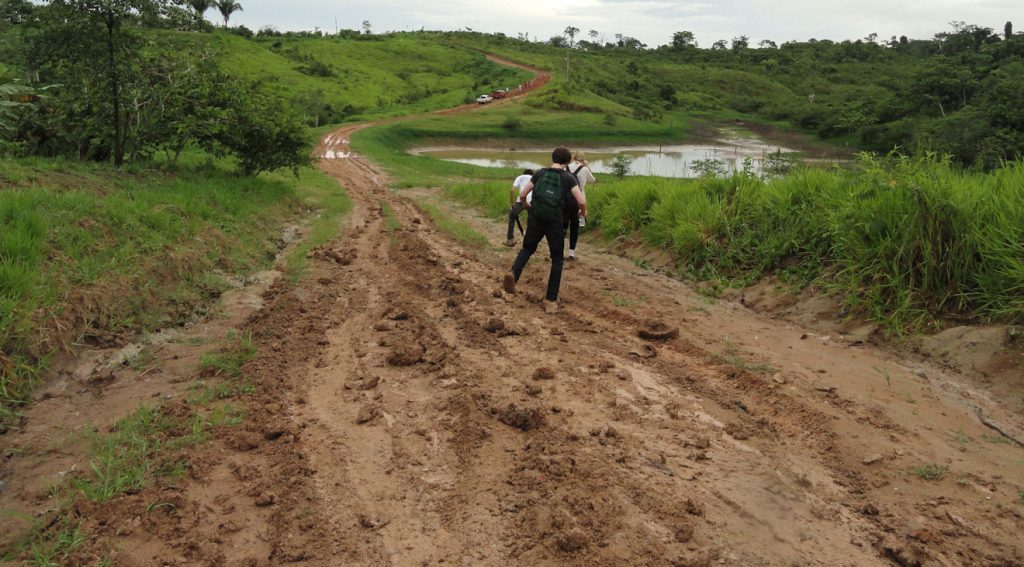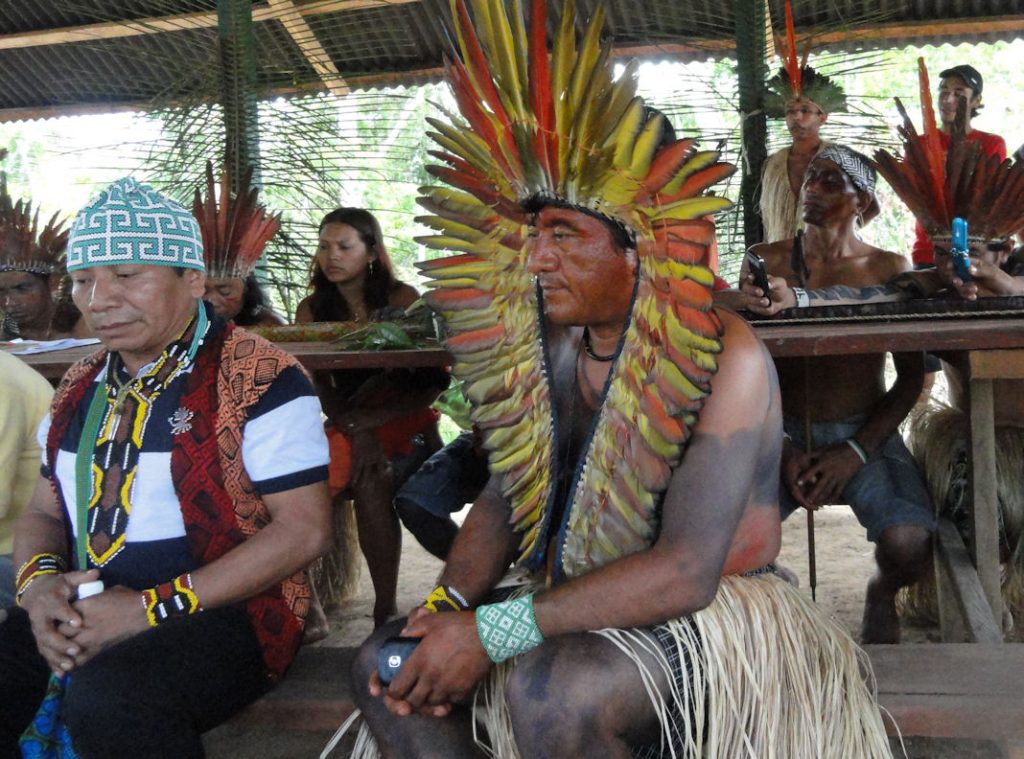
There is a strange mixture of connection and isolation among the Huni Kui in Acre. On the one hand, they are physically isolated. The dirt road would effectively cut them off from the rest of the world many rainy days of the year. On the other hand, they are connected.
When you drive the road from Rio Branco to Taraucuá you can easily mistake progress for problem. The road is not good. There is long stretch that is about the width of an American driveway that runs between two broad clay shoulders. The driver told me that this part has only been in service for about two years. Before that, the trip that took us five hours would have taken at least two days because the road would have been impassible when wet. The driver said that you just had to wait until the sun came out to dry the mud.
We got a taste of this on the road to the indigenous village of Pinuyá. We got to the village easily. That was before the rain. After the rain, the four-wheel drive vehicles dared not come back all the way to pick us up. We had to walk about a mile through the mud to meet our vehicles, as you can see in the picture. It was an especially clinging mud that clung to our shoes a couple inches thick. The grass along the road was not better in most places. This has vegetation, but it is still a quagmire. You sink deeper into that than you do in the mud of the road. So we took the road. This is what the road recently asphalted that I mentioned above was like a few years ago. The narrow ribbon of asphalt makes it passable in all weather.
The people we visited in Pinuyá are isolated in many ways. As we learned by bitter experience, there are times when you cannot use the dirt road to access the asphalt road that leads to the wider world. The founders of this band came to this place in 1972, in fact, the get away from the wider world. The chief told us that at that time the town was far away. I can imagine and the whole town was farther from the wider world until they paved that part of the world. Of course Rio Branco was more isolated. The band didn’t move to the town, but the down moved to them. Today their land in encroached upon on all sides and the town is within the distance of a long walk.
When the elders were telling the story of the tribe, a couple guys were recording their comments on their mobile phones. They are clearly within the net of world communications, but not able always to get there physically. You see an interesting anomaly below. The guy talking is telling about traditions and singing traditional songs. The two guys on the side are using their mobile phones to preserve the tradition.

Taking a tangent, I think this is why Brazilians are so interested in distance education.They can reach these villages more easily with Internet than any other way. I spoke to the Acre State Secretary of Education, who told me that they were considering changing the school year to take advantage of the dry season. Acre has distinctive wet and dry seasons.It would make sense to work within the seasonal imperative than to try to ignore them or overcome them.
